Episodes
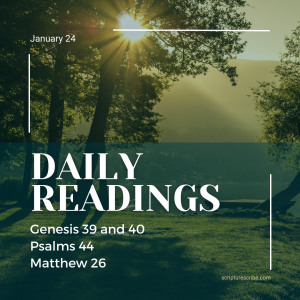
Monday Jun 23, 2025
Monday Jun 23, 2025
The readings in Samuel follow the journey of the ark whilst it is in Philistine possession until its return to the covenant people at the "forest of the woods" (Kirjath-jearim see Psalm 132). Firstly in Ashdod Yahweh's supremacy is shown over Dagon the fish god, by its symbolic prostration before Israel's God and finally it being shattered. Following this the inhabitants were plagued with tumours, called emerods, or haemorrhoids in the AV; these tumours seemingly being occasioned by a mice plague. Despairingly the ark is relocated to each of the five chief cities and the plagues of mice and tumours following the pattern. The Philistines were terrified that Israel's God would destroy them and so they devised a scheme to make a trespass offering of gold fashioned after their plagues and to send the ark home. They took two cows, which were still feeding their calves, and contrary to the natural expectation wend their way to the house of Joshua in Beth-shemesh. Here curiosity overtook the foolish inhabitants who decided, contrary to God's laws, to gaze inside the ark and consequently 70 men died. Like the Philistines the ark was relocated to Kirjath-jearim where it remained for about 90 years before eventually being brought triumphantly by David to its resting place in Jerusalem.
The prophet counsels the nation to reconsider its roots - Abraham and Sarah who responded to God in faith and proceeded to live uprightly before Him resulting in immense blessings. Yahweh their Rock stabilised Zion's foundations and those who likewise follow the path of the righteous will see Eden bloom on earth again in Messiah's kingdom; which will extend to the ends of the earth. Verses 4-6 tell of their Sovereign's appeal for Israel to await the revealing of His righteousness. Verses 7-8 describe the LORD's call to His people that His Law may find a home in their hearts, just as the tables of the Law were rightly within the ark of the Covenant. But for those who lived as though God's Word was but stone tablets they would perish with all those who saw the Law as an inflexible and rigid code which they used to judge others: Hebrews 1 verses 9-13. Verses 9-11 speak of the redeemed rousing themselves to embrace the principles of Zion, the mother of all who are faithful. The Almighty Creator appeals to His children in verses 12-16 to acknowledge His omnipotence. Verses 17-20 asks His children to stir themselves up and arouse themselves from their despondent and downcast state. The nation must forget their past persecutions and embrace Yahweh their faithful husband. God will console His people and bring vengeance upon their foes. Verses 21-23 outline that the cup of affliction will pass from Zion to her adversaries. Let us lift our heads knowing that the redeemed will come to Zion with 'songs of everlasting joy'. And One who will bring this to pass cannot fail, for just as He created the foundations of the universe, so He establishes the foundation of each and every faithful believers.
In Revelation 7 we have described the sealing period of God's chosen people following Constantine's succeeding to the Roman throne. Believers were sealed by the Word of the LORD within their foreheads - minds, or thinking. The era of sealing commenced with the relative calm that followed the chaos of civil war within the Empire until Constantine's securing of his throne in 324 AD. When the sealing had been completed the restraining angels would unleash the four winds of judgment upon guilty Rome. From each of the 12 tribes 12,000 are sealed - clearly a symbolic number used in the apocalyptic symbolism. Each tribe is represented except Dan, which seems exempted because of its symbolising apostasy. Joseph had 2 portions as the firstborn and so both Ephraim and Manasseh are counted. The total representative number is 144,000 (identical to the virginal community, who are with the Lamb on Mount Zion Revelation 14 verse 1 and whose thinking is focused on that of their Father). In verses 9-17 those sealed ones have come through great trials (Acts 14 verse 22). And since they come out of every nation they are not literally from Israel, but they truly constitute, spiritually, the Israel of God. These faithful followers are clothed in the white robes of righteousness and immortality and carry the victory palms of deliverance in their hands. Like those of Revelation 14 they are led by the Lamb, who sustained, fed and redeemed his sheep who follow and trust their Lord. There was an incipient fulfilment of these words at the time of Constantine's rise to power in the Roman heavens. The ecclesiastical historian Eusebius tells us that the words of verses 10-12 were spoken at Constantine's inauguration. But in reality, the words belong to the Lord Jesus Christ and the commencement of his kingdom age. The Great Shepherd King, who has sustained and feed his people throughout their pilgrimage, now finally brings them into his rest. Gone are the trials belonging to the time of their mortality, as they now become part of the Father's glorified and consoled community (compare Revelation 21:1-4).The book of Revelation is structured so as to intersperse among the unfolding sequential historical events visions of comfort to encourage those who are experiencing the trials on their journey to the kingdom of God. Chapters 7, 10, 14-15, 19 and finally 21-22 serve this purpose throughout the prophecy - visions of future glory. Chapter 8 sees the unleashing of the judgments of the four wind angels from verse 8 onwards. Prior to this was a period of calm before the storm of tumultuous upheaval in the empire which lasted for 14 years from 324-328 AD. Half an hour in prophetic symbolism. The sounding of the 7 trumpeting angels Is recorded in chapters 8-11. The sounding of the angels start with the opening of the seventh seal in 328 AD. How vital it is that the saints of this time, as is always the case, should be sustained by prayer represented as sweet incense before the Father (Psalm 141:2).The first trumpet began sounding in 328 AD and continued until 428 AD. It told of the Goths under the command of Alaric attacking the Empire. The second of the wind trumpets sounded from 428 AD until 477 AD and spoke of the Vandals under Genseric sacking Rome. Verses 10-12 tell of the barbarian ravaging of the third trumpet against Rome between 433-453 AD under the Huns commanded by Attila. The fourth and final wind trumpet was by the Goth, Odoacer, in AD 476 and spoke of the final overthrow of the western Roman Empire. Hereafter the seat of Rulership was transferred to the capital of the eastern Empire in Constantinople from 476 AD onwards until its destruction on May 29th 1453 AD. The agents of destruction in the east were the Islamic powers started by the false prophet, Mohammed. Chapter 9 speaks of the opening of the pit of the abyss which released the Mohammedans to scourge the triune God worshippers from the Eastern Orthodox Church. Mohammed assumed control over his Arabs in 632 AD. Verses 13-20 speak of the rise of the Ottoman (Turkish) Empire and its destructive attacking waves on Christian Europe and its eastern Roman capital of Constantinople. These attacks commenced on April 29th 1063 AD until their work was completed in 1453. Our Omnipotent Sovereign's fingers always direct and control the course of history just as our lives are safely held in those almighty, but tender and caring, Hands.
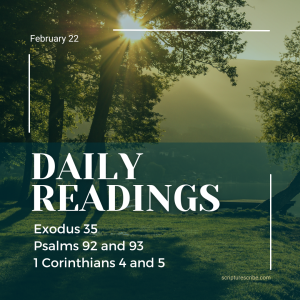
Saturday Jun 21, 2025
Saturday Jun 21, 2025
Samuel, as well as being Israel's last judge, was the bridge between the 450 year era of the judges and the kingdom of God on earth in its first constitution. From the lofty heights of Ramathaim-Zophim came a devout Levite named Elkanah, who has two wives Hannah and Peninnah - the former being barren, but greatly loved. Hannah was sorely grieved and provoked by her adversary Peninnah. Together Elkanah and Hannah went to the Tabernacle at Shiloh to entreat God for a son. In her extreme grief Eli, the High Priest, mistakenly thinks she is a drunken loose woman and implores her to leave. She pours out to him her heart, just as she has done to God, and he asks that Yahweh would grant her the petition she made. Samuel is born, prepared and educated at home for a life of service to the LORD. At the appropriate time he is presented at the house of worship and returned to God.
Isaiah 46 outlines the utter futility of idols, which had to be rescued and rushed away from the battle at Babylon's fall. Verses 3-4 tell of Yahweh being Israel's nursing Father who from the time of the nation's birth until their old age. He is the Redeemer of Israel and will save them with an everlasting salvation in Messiah's kingdom. Verses 5-7 describe the mindset of idol worshippers and the futility that comes with their exertions to make a beautiful idol. Verses 8-11 tell of the Almighty judging of all idolators and the foreknowledge and power of our Omnipotent Creator who knows everything that will happen and reveals the important truths about His people through His prophets: Amos 3verses 1-8. The man destined to conquer Babylon and execute the LORD's judgement s was Cyrus king of Persia. Cyrus Is likened to a bird of prey ravening the carcass of degenerate Babylon. Contrast this with our Omniscient Creator who tells the future, even predicting the overthrowing of Babylon about 200 years after this prophecy by Isaiah concerning Cyrus, whose method of capturing the impregnable city of Babylon is described. That he would also decree for the exiles from Jerusalem to return - see Ezra 1 verses 1-4; which occurred in BC 537. A coin commemorating this and the relocation of the US Embassy to Jerusalem was issued in 2017 with the quote from Ezra.Isaiah 47 is a chapter of Zion's rejoicing at the humiliation of Babylon. That majestic harlot sits in the dust to eke out an existence and she does so because as verse 4 says: "Yahweh has redeemed Zion". The two women of this chapter are the two women of Proverbs and the two women of Revelation. Verses 5-9 outline the haughty thoughts of literal Babylon and they are symbolic of the thinking of mystical Babylon. The words are quoted in Revelation 18:7. Verses 10-13 tell of her lying enchantments and sorceries which are commented on in Revelation 18 verses 11-24. Isaiah 47 verses 14-15 speaks of Babylon's being brought to nought.
Revelation 3 is our Lord's timeless message of warning, advice and essential attitudinal changes were required of the 3 of the 7 Turkish ecclesias Sardis, Philadelphia and Laodicea. The first had to realise that the reputation Sardis once enjoyed was gone and they needed to wake up, repent and get back to their roots. Philadelphia, alone of the ecclesias received no condemnation, but rather they are encouraged to remain steadfast. On the other hand, the wealthy Laodicea was pitifully ignorant of their true state and needed to open the door of their hearts to the soon to be returned and door-knocking Lord Jesus Christ. Chapter 4 presents the Christ ruling with his saints in glory. The chapter is an invitation for the Lamb, the Lord Jesus Christ, to ascend into the political heavens through the open door and rule upon the earth. This is an encouraging vision of the kingdom on which we will elaborate on in tomorrows' comments. Chapter 4 presents the Christ ruling with his saints in glory. It is part of a vision of the Lord Jesus Christ ruling in glory with his saints - faithful believers - during the kingdom age soon to come. The Apostle John as part of the Lords bride is invited into the political heavens of rulership at the start of this vision. The first part of this vision is revealed in chapter 4 verses 2-11. John sees the throne of the Lamb surrounded by 24 elders who represent the worthy saints of all time until the resurrection. They are the 24 orders of king-priests that reign with Jesus Messiah. These 24 elders are described in verse 7 as being like the cherubim of Ezekiel 1 and the seraphim of Isaiah 6. In verses 8-11 they rightfully ascribe glory to God and His glorious Son.
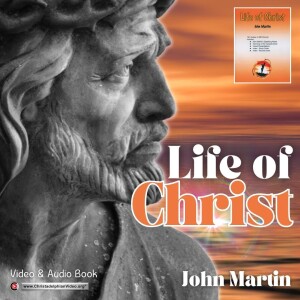
Friday Jun 20, 2025
Friday Jun 20, 2025
The Life Of Christ - # 89 Warning againts offending God's Little ones by John Martin_1
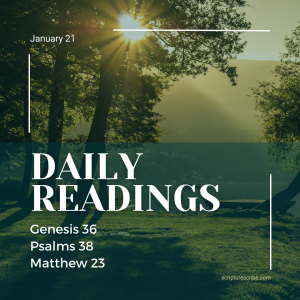
Friday Jun 20, 2025
Friday Jun 20, 2025
Naomi (whose name meant 'sweetness') had experienced great 'bitterness' (Mara) as chapter 1verses 20-21 indicated, at the hand of the Almighty (El Shaddai - the strength of the nourishers and destroyers). So in chapter 3 a plan is devised so that Boaz will marry Ruth. In verse 9 the word translated as "wings" means the extremity of a garment (which was fringed with a blue ribbon: to remind Israel that they were the people of the Almighty and under the guidance of heaven). We, too, are in God's hands: Deuteronomy 33verse 27.In chapter 4 Boaz becomes the Redeemer, or near kinsmen, typifying Christ redeeming us when the Law could not. So by this union the grandfather of David is born in the "house of bread and praise". In so many ways David became the "bread of life" for the people of God(see Psalm 78verses 70-72).
Isaiah outlines the great work of Cyrus by describing the return from Babylonian exile that he would decree and accomplish in BC 537 (commemorated in a coin minted in 2017 which quotes Ezra 1verse 2). Verses 1-7 tell us that Cyrus the Persian king had been foreordained by Yahweh to do an incredible work on behalf of Israel (God's chosen people). The name Cyrus means "one like the heir" ie the Lord Jesus Christ: the heir of all things (Hebrews 1verse 1-2). Cyrus the Persian king was an instrument used by the Almighty - though Cyrus did not know this Isaiah 45verse 4. The great work of Cyrus was to free the Jewish exiles and send them home to Jerusalem to rebuild the city. But to do this Babylon the Great had to be destroyed first. Likewise the kingdom of our Lord Jesus Christ can only prosper when the mystical Babylon of the book of Revelation has been destroyed. Verses 6-7 tell us that Yahweh will be known for His works: Ezekiel the prophet declares 63 times: "and they shall know that I am Yahweh". Verse 8 says that this work is a preparation for the times of blessing. Verses 9-10 are a reminder that the LORD's vessels are His to use as He pleases and that they have no right to question His choice. Verses 11-13 tell of the power of the Omnipotent Creator and His unstoppable Will. Verses 14-17 speak of the God of Israel being the only Saviour. Those who believe and trust in Him will be saved with an everlasting salvation. In contrast believers in idols will have confusion and everlasting destruction. Verses 18-19 tell us that the Almighty Creator formed the earth to be populated by individuals who know, love and serve Him. Verses 20-21 issue a challenge to idol worshippers to predict anything that will happen - of course they being non entities are powerless to do so. In verses 22-23 the only true God invites and commands all to turn to Him and acknowledge and serve Him. He has sent His Son who will rule for Him and requires everyone to accept and honour His Son as they must do with the Almighty Himself: John 5 verses 19-24; Philippians 2 verses 9; 1 Corinthians 15 verses 20-28. The last two verses of the chapter remind us that only in Yahweh do we have righteousness, strength, justification and glorification.
We are told in 2 Timothy 3 verses 16 that "all Scripture has been breathed out by God". This includes the book of Revelation which is known in the Greek as 'the Apocalypse'. It was as its first verse tells us given to the Lord Jesus Christ by his Father who showed our Lord the matters "revealed" in that book. But having received those wonderful matters Jesus 'reveals' those matters via his angel through John the Apostle to all believers. In Revelation we have the only book in the Bible directly given to believers by the Lord Jesus Christ (1 verse 1) and encompassing blessings on the diligent readers (v3). It contains letters of advice in chapters 2-3 from the Lord which are portrayed in the opening vision of 1verses 9-20,. Each of the seven ecclesias in Turkey are told what's wrong with their attitude, and also they receive commendation for their successes. The 7 letters all emphasise faithful works that are necessary to please our Father and His Son. These works are seen in the faithful lives of His children as they strive to walk to the Father's kingdom guided daily by the energy drawn from the love of the Father and His Son and given to us through the Word of the Almighty. From this amalgam of instructions we are to be both warned and encouraged; in order for us to, like our Lord 'overcome' the world (2 verses 26-27) and so be blessed to inherit the Kingdom.
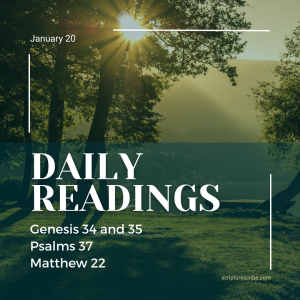
Thursday Jun 19, 2025
Thursday Jun 19, 2025
The first portion commences"In the days when the judges ruled". The book sets the times, as paralleling the time of the second appendix to Judges 19-21, and is as vital in preparing us for David's kingship as the end of the last book was in establishing Saul's origins. Even the locality is the same in Bethlehem/Judah(' the house of bread and praise'). We are told that there was literally a famine in the land at that time, undoubtedly spiritual as well as literal; a scarcity of the word of God. Ironically the man Elimelech('my God is king'), representing what the nation should have known; yet living as though there was no king and doing what was right in their own eyes; believing sustenance could be found apart from the people of God, left for Moab. The two sons marry non-covenanted wives and die (their names also emblematic of their unfaithfulness - sickly and pining). Death overtakes them leaving faithful Naomi heirless. On hearing that "God had visited His people with bread" the three women commence the homeward journey. Orpah stays in Moab, but Ruth passionately and imploringly pleads her loyalty to Israel's God (1 verses 16-17). They arrive home at Passover- the time of the barley harvest.Chapter 2, introduces us to faithful Boaz whose description matches that of Gideon in Judges 6. Providentially he extends to Ruth the care and compassion of the Creator to strangers and widows. She is blessed bountifully and we await developments in the unfolding story. We are impressed by the Godly environment that Boaz has created for his workers despite the deplorable spiritual conditions which prevailed throughout the nation.
Isaiah 44 announces the superabundance of blessings that God will bestow upon children responding to His gracious pleas. Verses 1-5 speak of the blessings Yahweh will give to Israel, His chosen people. Verse 5 tells of the time when their Sovereign's children identify with Him by surnaming themselves as the people of the God of Jacob. This theme is picked up in the Servant prophecies in chapter 65:15-19. In Isaiah 44:6-8 Yahweh declares that He alone is God and Israel's Saviour. That understanding is the reason that His people in verse 5 now choose to be known as the people of the God of Israel. Verses 9-20 contrast the Omnipotent Creator to dumb, useless, impotent idols. There is wonderful irony in the way that the prophet ridicules the idols and their makers. The fashioner of the graven image wearies himself in the task of making his image and uses a part of the same tree to warm himself and bake his bread. What complete folly there is in the idolater's failure to see the stupidity of idols and those that form them. Verses 21-25 tell us what the LORD was about to do in saving His people. Verses 26-28 reveal the work of Cyrus the Persian as the man chosen by Yahweh to overthrow Babylon. He would also decree liberty for the captives and send exiled Israel home to rebuild Jerusalem. This prophecy was made about one and a half centuries before Cyrus accomplished this great work of the LORD.. Cyrus' name is symbolic of his typical role, as the Lord Jesus Christ, meaning "one like the heir".
Jude tells us that he is the brother of James. In James' letter he says to us that he is the Lord Jesus Christ's brother (actually half brother - for Mary was their mother see Mark 3verse 31-35; and 6 verse 3). Joseph was the father of James and Jude. Mary was, contrary to orthodox teaching, not a perpetual virgin. After Jesus was born Joseph had a normal marital relationship with Mary (see Matthew 1verses 23-25) and had an additional 3 sons and at least 2 unnamed daughters. Unlike his siblings Jesus was conceived by the power of God - the Holy Spirit (Luke 1verses 30-35). The letter of Jude deals with the same issues as 2 Peter 2 - the problems created by the false teachers. The letter was written about 65 AD, by which time the departures in teaching from the true faith were multiplying. Jude had set out with the purpose of writing a letter to encourage his readers in their shared faith. But due to the pressing problems created by the errorists Jude was diverted to write about the need to continue in the faith and to strenuously resist the errorists. Verses 3-16 tell us that there will always be opposition from false brethren. Jude cites 5 Scriptural historical examples. These demonstrate God's dealings with the false leaders and, inferentially show the same point as 2 Peter 2 ie that Yahweh knows how to preserve and deliver the righteous. The first example was from the time of the wilderness wanderings, when Korah, Dathan and Abiram attempted to usurp the authority of Moses and Aaron. Numbers 16 gives details of that rebellion. The second example is the destruction of Sodom and deliverance of righteous Lot found in Genesis 19. The third example is that of the insatiable covetousness of Balaam, which not only destroyed himself but, also, many Israelites at the border of the Promised Land. These events are outlined in Numbers chapters 22-25. Example 4 related to the Samaritan opposition to the rebuilding of Jerusalem and is outlined in the books of Ezra and Nehemiah. The Samaritans falsely claimed a religious affinity with the God of Israel and they contended with chosen people. The 5th example is that of powerful and blasphemous Lamech in his attempt to eradicate Enoch. Genesis 4 shows us that only 7 generations from Adam wicked and godless men were opposing the way of God. Note in the AV that "ungodly" is used 7 times. Contrast Psalm 1, which in the Hebrew Bible is attributed to Enoch. Read aloud slowly. Pause and ponder. Verses 12-13 are a series of metaphors which expose the uselessness and dangers of all false teachers. The chapter concludes with a call to stand steadfast for the faith. The events overtaking the ecclesias had been prophesied by the Apostles. Scripture was being fulfilled before their eyes. Their part was to continue to faithfully follow their Lord Jesus Christ. So too must we. Any who become defiled by the influence of the false teachers are like a stick in the fire that needs to be swiftly plucked from the fire and extinguished. Let's pause and slowly read aloud and ponder the closing doxology of verses 24-25, "Now to him who is able to keep you from stumbling and to present you blameless before the presence of his glory with great joy, to the only God, our Saviour, through Jesus Christ our Lord, be glory, majesty, dominion, and authority, before all time and now and forever. Amen." ESV
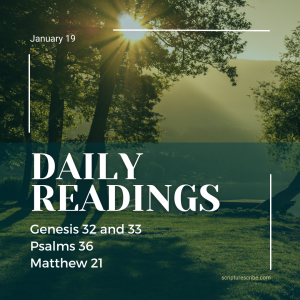
Wednesday Jun 18, 2025
Wednesday Jun 18, 2025
At Mizpah, a significant and important holy place in Israel, where the men of Israel swore an oath which prevented any of them allowing any of their daughters to marry any of the remaining Benjamites. With deepest regrets they puzzled over a solution. It involved 400 of the remaining, stealing wives from the Jabesh-Gileadites, who had failed to support the united campaign to eradicate the Benjamites. That city was butchered apart from the 400 virgins, who were given to the cowering remnant. Additionally there was an annual festival held at Shiloh, whence the Tabernacle resided and it was from here that the remaining wives were stolen. The book concludes with the sad epithet- “In those days there was no king in Israel. Everyone did that which was right in their own eyes.” (21verse 25)
Isaiah 43 carries one of the greatest proofs of Yahweh’s inerrant infallibility in that He alone can predict the future with complete certainty. The Jews and their history bare testimony to that. The scene of Isaiah 43 is a courtroom where the Almighty is to impartially weigh the evidence. All nations are to ask their gods to prophesy: tell of future events with unfailing accuracy. They cannot do that. So Israel’s Sovereign commands their silence since they are powerless to predict anything. Then Israel’s Omnipotent Creator summons His witness: Israel. Their history has been foretold by the LORD’s prophets from Moses’ time to the prophecies of the book of Revelation. Look, for example, at Deuteronomy 28, Isaiah 54 verse 17. When Frederick the great challenged his courtiers to prove the existence of God it was Blair’s Pascual who replied, “The Jew, your majesty”. At the end of the 19th century Mark Twain wrote an essay on this subject and called it “The Immortal Jew”. He said history testifies to the Almighty preserving His people: Israel. Isaiah established that Yahweh Israel’s God is the one true God and He alone can save. It is His purpose to save not only the Jews but all nations through belief in the Abrahamic promises: Genesis 12verse 1-3; Romans 4 verses 1-13. This salvation is through belief of the teachings of His Son the Lord Jesus Christ. The salvation will be when Christ returns to set up his kingdom. Though Israel has profaned Yahweh’s name He will save them as the Apostle Paul says in Romans 11 verse 11-36.
2nd and 3rd John are short personal letters written fairly close to each other, around 95-96 AD. The first of these letters being to a beloved friend termed “the elect (or chosen {by God} lady). The aged Apostle had a deep love for this sister because of her hospitality and faithfulness. His salutations of, “Grace, mercy and peace” come from a mature faith and are the same as those of the Apostle Paul to Timothy and Titus; the so called “Pastoral letters”. Verses 4-11 express John’s great joy that this wonderful sister’s children had chosen to walk in the Truth. John reiterates the new command, “to walk in love”; frequently spoken of his gospel account and first letter. He also warns of the false teachers (antichrists) mentioned at length in his first letter. The woman and her faithful family – the ecclesia – must abide in the true teaching of the Father and His Beloved Son. Anyone walking contrary to that, in behaviour or doctrine, was to be forbidden the fellowship of the saints. In his final greetings, of verses 12-13, John expressed his hope of catching up face to face, rather than through a letter. 3rd John was written to a friend who had often been the old Apostle’s host – Gaius – who was deeply “loved in the Lord”. This brother was a Thessalonian, who had been converted to the Truth by the Apostle Paul. Verses 5-12 speak of the supporters of ecclesial work and others who were the opponents – the enemies of the Faith. Gaius and those like him had shown great hospitality to visitors, who preached the Gospel. Support for such was commanded by our Lord Jesus Christ when he sent forth the 72 in Luke 10. We who cannot ourselves go into the mission fields have a responsibility both in prayer and financially to support those who undertake the Great Commission of taking the Gospel to the world (Matthew 28). John says that those who do so have become fellow helpers of the Truth. The Apostle warns his readers of a puffed up, self important errorist, who not only dragged down the faithful, but would take an aggressive stand against all who , like the Apostle John, would take a stand for truth and moral uprightness. Don’t be imitators of evil, but only of the true (see Ephesians 5 verses 1-21). In his final greetings the Apostle speaks of his desire to spend time with the faithful in a face to face context, rather than via letter. Peace will be with the faithful.
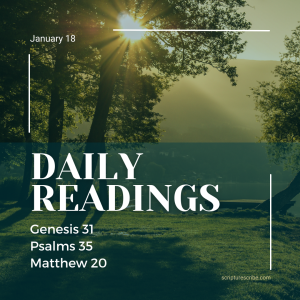
Tuesday Jun 17, 2025
Tuesday Jun 17, 2025
How ironic that the unity which was lacking at the start of Judges is now evident for retribution. Verse 1 "all Israel... as one man... from Dan to Beersheba came together to destroy their brothers - 400,000 of them. On hearing the Levite's report vengeance is agreed upon. In v11, for emphasis, we have repeated "all Israel... as one man". The Benjamites, likewise, gather unitedly to fight for undeserving reprobates in a forlorn hope. The record adds, with a measure of sadness, that 700 from the tribe meaning 'son of the right hand' were left-handed ie untrue to what should be expected from them. These Benjamanites were so accurate in using their slingshots that the description was that they could hit a target of a hair's' breadth - the expression "not miss" means in the Hebrew to 'not sin' (sin is 'a missing of the mark'; we aim for perfection but we all fall short of this: see Romans 3 verse 23). The chapter concludes with the near extinction of the tribe of Benjamin - but 600 only surviving.
Isaiah describes Messiah's wholehearted devotion and gentle support of any who could be revitalised. Verses 1-4 tell of the faithfulness of the servant - our Lord Jesus Christ - who will not rest until he has completed his Father's work. That work involves tenderness and encouragement of the downcast and strugglers. Messiah will focus their minds on Almighty God who strengthens all who put their trust in Him. Verses 5-9 speaks of Yahweh's character and care for His children. They righteous sing a new song in praise of their Sovereign in verses 10-13. Verses 14-17 tell of the LORD rousing Himself to vindicate His people and to bring vengeance upon their enemies. The Servant himself is supported and sustained by God Almighty. Sadly the chapter concludes with a lament that, in large measure, the nation would be unheeding of Messiah's message imploring Israel to turn to their Maker. As Isaiah 6 had said they would be deaf to the message and blind to the signs that the Messiah would show them.
In 1 John 5 verses 1-5 we are told the source of overcoming the world - by the faith of the son of God, who loved me and gave himself for me. And by that faith I live. An early Christadelphian writer, John Thomas said, that this was by a faith, which works by love and purifiers the soul (life). John Thomas was alluding to the early verses of Galatians 5. The Apostle John tells us that such a belief is evidence of our divine begetting. And, for us, it is the assurance ("by this we know") that God is with us. We can be more than conquerors through Him who loves us (Romans 8). The work, spoken of in chapter 2, is not about our love, but we do love the Father with all of our heart. And this love of the Father which impels us was the motive force of the life of the Son of God. Read Romans 8 verses 31-39 slowly and pause and ponder. Verses 6-12 provide testimony concerning the Son of God. Our Lord Jesus who came by water and blood - the water in which he was immersed at his baptism and the water of the Word of God with which his mind was saturated; and the blood of his sacrificial offering of himself. This offering was sanctified by the Word of God and prayer and pleased his Father. John is alluding to his witnessing of the crucifixion (John 19 verses 34-37). Verse 7 from the ESV reads, and I quote in full, "For there are three that testify:". Most of the better translations recognise the insertion into the text of additional words which aren't found in most of the older manuscripts. The additional words used in the KJV (and some other versions are admitted by most modern translations to be spurious and added by a Jesuit monk, Immanuel Tapsensis). Verse 8 identifies the three witnesses to our Lord's divine Sonship as - the Spirit, the water and the blood. Under the law at least two corroborating witnesses were needed to determine truth. John affirms total agreement among these witnesses. Additionally God bore testimony, Matthew 3 verses 15-17, to His Son. And only in His Son, and through His Son's work, we have life. From verses 13-21 the beloved disciple John has written these things for our assurance ("that we may know"). We have known and believed upon the name above every name (Philippians 2:9-11), and the only name in which there is salvation (Acts 4 verse 12). And through continuance in this Name salvation is assured. John repeats that the Father's ear is ever open to His children's pleas. Verses 16-17 reiterates that when we love the brethren we will help them (as they will likewise help us) when we stumble (Galatians 6 verse 1-5). Such advice and correction will prevent rejection at the coming judgment of our Lord Jesus Christ. But, for the habitual and lawless sinner, who has abandoned any attempt to continue walking in the light there remains "no offering for sin" (Hebrews 10 verses 26-39). Being begotten by God, through His Word (1 Peter 1verse 22-25), we overcome in faith and walk in the way of His commandments. The world and its ways allure, but cannot conquer us. Finally, says John, "Keep yourself from idols" - a specific allusion to the Ten Commandments (especially numbers 1 and 10 which bookend all the others). Keeping ourselves from idols is about the tendency within our human nature to always look after ourselves before applying ourselves to living according to the ways of our Almighty Father.
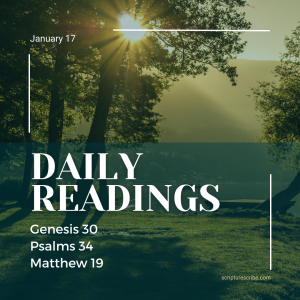
Monday Jun 16, 2025
Monday Jun 16, 2025
The tell tale words "In those days when there was no king in Israel" start the sorry saga of the final appendix of the book. They set the scene for the sad state of Benjamin from which tribe came the nation's first earthly king. An unfaithful concubine from Bethlehem-Judah in the allotment of Judah returned to her home having her Levite husband. This unnamed Levite would not, ironically, stay in Jebusite territory lest evil befall them. Instead unspeakable crimes were perpetrated upon his concubine by fellow Jewish reprobates of Jerusalem from the tribe of Benjamin. The Levite heartless husband took the carcass of the pitiful victim, who had been abused all night long by the perverted Benjaminites. The Levite dissected her into 12 parts which were sent to each tribe to invoke retribution. His actions later were copied by king Saul to arouse Israel to unite and take vengeance upon the Benjaminites. How ironic it is that Saul's own tribe: Benjamin - was almost brought to extinction in response to the Levites actions; and that Saul cuts an ox into 12 parts in the same fashion as the Levite did with his concubine.
Isaiah 41 is a prophecy about the Persian king Cyrus who overthrew king Belshazzar's Babylon in BC 538. The chapter tells us of the useless futility of idols and the stupidity of those who insanely give them credence in worship. In Isaiah 41 the faithful are reminded that, despite seemingly unstoppable calamity, their trust in the Almighty will see those He deems to be His faithful servants delivered. So the prophet urges a calmness that will come from heeding their Sovereign's Word. Verses 2-4 describe what the LORD has done for His people and tell them Yahweh alone is their Saviour and God. Verses 5-6 tell of the coastlands response. However verse 7 speaks of a futile persistence of some in idolatry. Verses 8-10 appeal to Israel to trust in their Sovereign. Verses 11-16 encourage Israel that the LORD will protect His people and destroy their foes. Verses 17-20 speak of grand promises of the Almighty to prosper and bless His people. We see some of these in Israel today, but they tell of the refreshing that comes in Messiah's kingdom. Verses 21-24 describe the total uselessness of idols. Verses 25-29 contrasts Yahweh with the stupid and dumb idols. Yahweh is infallible and reveals His will to His children.
Verses 1-10 of 1 John 3 elaborates on God's love. The beloved Apostle invites his readers to behold the extent and greatness of the Father's love. Our Sovereign has chosen to condescend and to adopt us as His children. We have entered His family at the immense cost of the sacrifice of His beloved Son. John tells his hearers that they have barely begun conceiving the depth of that love; which will be further understood when our Lord Jesus Christ returns. An appreciation of that love has a purifying effect on the disciple's life. But a failure to understand the moral imperative of Christ's laying down his life has upon the believer could lead to loose living (and then finally to a lost life). It is not the sin of weakness due to the frailty of our nature, but rather the of abandonment to sin (ie living habitually for sin), that concerns the Apostle. John has addressed the weakness of human nature in his first two chapters. To continue practicing sin is to deny the grace of the Father and the great price that was paid for our redemption. Are we the children of the world (ie the devil), or are the children of God? The fruit of our life is the evidence. From verses 11-24 we are shown that how we behave towards our brethren demonstrates our parentage. Do we live a live congruent with our claims? An excursion through the gospel of John will reveal how the case is developed from the words of our Lord Jesus Christ. The motive for the first murder in the Bible was envy progressing into hate. We must always attribute the best motives to our brethren. Slandering, or belittling, others incurs the displeasure of our Father. Cain was banished from God's presence and separated from the hope of a life with the Father. Yahweh sent His Son to lay down his own precious life to bring us into fellowship. Though we may have many a doubt (because we are weak humans) the LORD knows our motives, better than we can understand them ourselves (1 Corinthians 4:1-5). Our Father is ready, willing and able to lovingly respond to our needs and requests (see Romans 8 verses 28-39). Chapter 4 commences with the need to test whether the teachings are true ("try the spirits"), and from God. John in chapter 2 has already told his readers that the errors of the antichrist were active among the community of the disciples. One of the prime identifying features would be the belief in the Trinity, which originated in catechism 312 AD (having been debated by believers for decades prior to endorsing that view. The acceptance that the Lord Jesus Christ was part of a triune God is completely counter to the entire teaching of the Scriptures (even the Encyclopaedia Britannica admits this in its article on the Trinity). Jesus was completely a man, even though he was the Son of God. John 1 verses 1-18 tell us his beginnings were when he was born (compare Acts 10verses 38-43). Jesus came in the flesh (Hebrews 2 verses 8-18) and this was the only understanding of the first century community of faithful believers (read "The Apostles' Creed"). Believers need to listen to God and His Word, not human speculations from false teachers. From verses 7-21 we are further told how "God is love". When we love each other with a true heart and fervently it is a witness that we are God's children. The Father's love in redeeming an erring race has been seen from the time of Creation. Its pinnacle was reached in the sending of His Son to provide a ransom for us. Our Lord was able to comply with His Father's will because of their unity of love and purpose in providing a place for our acceptance on the basis of Truth believed and sins forgiven. An understanding of this and a life lived sacrificially in love and service is the only life a disciple can live. Anything else is nothing but a hypocritical lie.
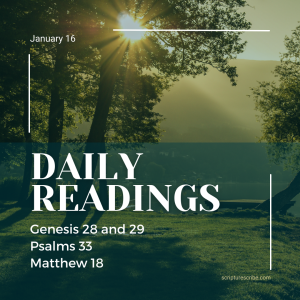
Sunday Jun 15, 2025
Sunday Jun 15, 2025
The sad and disgraceful record of our two chapters is one of the 2 appendices to the time of the judges and occurred in Judges. The events described happened quite early in that 450 year period, at the epoch when the elders who had outlived Joshua were all dead. It is the prequel to the Samson record described in chapters 13-16. These chapters explain both the apostasy commenced by the tribe of Dan and the reasons why many of the faithful Danites did not move to the territory that was conquered by the ambitious and ruthless leaders of the tribe, against the laid back Zidonians. The story begins at the time of Moses’ grandson, whose name was changed by a scribe in the AV, to protect the reputation and esteem in which Moses was held. However the ESV tells us in 18 verse 30 that it was Jonathan the son of Gershom the son of Moses, rather than an unnamed Levite mentioned in Judges 17verse 7. Micah’s mother is a dishonest idolater who congratulates her son for confessing his theft and then his mother changes the terms of her vow. Such was the morality of those days when everyone did what was right in their own eyes ie each person was the arbiter of what was right to him, or her. Chapter 18 describes the morality of the majority of the tribe of Dan who are prepared to kidnap Jonathan the Levite. They were prepared to slaughter the enraged men of Micah’s centre of idol worship. Then they slaughtered the peaceful people of a city, 17 kilometres to the east of the Zidonian coast, rather than obey the commandment of the LORD to destroy the Canaanites and take their allotted inheritance. In that place the Danites commence the apostacy that resulted in the calf worship in Dan many centuries later in the days of Jeroboam 1 of Israel.
Isaiah 40 is the commencement of the section of the prophecy through to chapter 66 often called the ‘gospel in the Old Testament’. It begins with ‘the comfort’ of God being revealed to His people. As we read this chapter the echoes of Handel’s Messiah resonate in our ears. The mission of John the Baptist and the unveiling of God’s glory that would be seen in Jesus the Messiah is next spoken about. Humanity’s true state and redemptive need are shown, together with the only solution to this problem, to be enlivened and transformed by the Word of God, and thus be fitted for perpetuating in the coming Kingdom. That Word has the power to spiritually transform us during our time of sojourning that we may be fitted for God physically changing us at Christ’s coming: Philippians 3 verse 20-21. The good news would begin in Jerusalem with the gospel being taught by a loving and caring tender shepherd: the Lord Jesus Christ. The Messiah would be supported by the prevailing and Omnipotent power of the Almighty Father, who would similarly empower all His children to be with Messiah when he comes on earth to rule. The chapter concludes with an empowering vision of what immortality will feel like . Carefully read verses 28-31 and see yourself as the recipient of divine mercy and being there when Messiah rules.
The first of John’s 3 letters was written between 85-98 AD by the aged and much beloved Apostle. He was one of the Lord’s special 3 – Peter, James and John – who were selected by Jesus from among the 12 to witness select events and miracles. Together with his brother James, they were both fishermen and partners of Peter and Andrew in the fishing business. Their father Zebedee and his wife Salome appear to have owned the Galilean business. Salome seems to have been Mary’s sister; making the two Apostles first cousins of our Lord Jesus Christ. Peter and John were paired by the Lord Jesus for various tasks including preaching. Peter may well have been the oldest of the Apostles and John the youngest. Peter died first as was prophesied by the Lord Jesus Christ around 67 AD; while John died up to 40, or more years after that time (see John 21verses 20-24). There are many internal evidences to the fact that the epistles of John and the book of Revelation were written towards the end of the first century AD (Revelation being the last writing of the New Testament; written after John’s exile to the island of Patmos in 96 AD under the Emperor Trajan). John describes himself in each of the three letters as, “the Elder”.
The vitally important themes of chapter 1 describe God’s terms for forgiving us:1. Confession and repentance2. Being in Christ by baptism – the blood of Christ cleanses us3. + Propitiation – Rom 3 : Grk hilasterion, Translated mercy seat in Hebrews. = chair, THRONE; MEETING PLACE- ROM 3 God is enthroned in Jesus Christ and “he* is the ONLY place wher God will meet with men. Verses 1-4 of chapter 1 speaks of what we heard from the beginning. Which beginning, we ask? The gospel of John tells us, 1:1 “In the beginning”. This was the birth of the Son of God – see verses 9-18 which speaks of the time when our Lord came into being (compare Acts 10 verses 35-43). They knew the Lord, ate with him, walked and talked with him. And to know our Lord was to understand His Father; and in that knowing was eternal life (John 17 verses 1-3). And the understanding of this good news (gospel) would lead to everlasting life in the kingdom of God, which will be set up at our Lord’s coming (2 Timothy 4 verse 1). The sharing of this understanding brings fellowship in joining together in partaking of the bread and wine (communion means sharing together); and also joy unspeakable. Verses 5-10 deal with, “Walking in the light”. Again a comparison with chapter 1 of John’s gospel record, shows the significance of light to the walk of the disciple – here Jesus is described as a light imparting source (phos – such as the light of the sun), contrasted to the light (luchnos – portable lamp) of the disciple John the Baptist. The three great themes of John’s first letter are: 1) God is light; 2) God is life; and, 3) God is love. The theme that “God is light flows from the first letter 1:5-2:6. The Apostle speaks in absolutes, black and white; and so he says, that there is no hint of any shadow (cp James 1:17). Wrong behaviour, says John, is evidence of not understanding the relationship believers have with the Father and His Son. Of course believers sin through weakness, but it is not in character with them to wilfully choose a life of sin. But as long as we are endeavouring to follow in Christ’s footsteps we will be forgiven upon confession of our sins. Verse 8 tells us that if we deny that our nature is biased to sin; or that we are not sinning; we are self deceived. However forgiveness is available to those in Christ who confess and forsake their sins. But, chapter 2 commences, “we have an advocate in the heavens in our Lord Jesus Christ. The word “advocate”, is a kindred word to the “comforter” (used in the gospel record in John; which the Lord was himself – and when he departed for heaven to be our priestly mediator; the Holy Spirit was sent by Jesus as another “comforter”). The word used here speaks of a defender in a court of law. The Greek word means, “I call and he runs to my side to aid me”. Our heartfelt confession and repentance means we need not fear rejection since the Lord Jesus Christ has provided a “place of introduction for us to God’s mercy – the word “propitiation” (see Romans 3 verses 21-26, 8 verses 27-39; compare with Ephesians 2 verses1-22). The basis for our acceptance before God is “Jesus Christ the righteous”. The righteous forgiveness provided by the LORD induces a moral imperative to walk in the way of the Almighty (Psalm 130). Chapter 2 verses 5-2 and 29 is the connection between God being light (phos illumination as opposed to reflection); and God being love. In fact, because He is love it is essential that He be an Illuminating source to His children through the Word of God (cp 1 Timothy 2 verses 1-5; 2 Peter 3 verses 8-13). In verses 7-14 the aged Apostle restates the “new commandment” of Jesus Christ, which was new to the extent that agape love had never been demonstrated to that extent before in any man other than our Lord cp John 15 verses 9-17). The loving life of the disciple flows from an understanding mind that has been illuminated by the Word of the Father (Proverbs 4 verses 18-19). The confidence of the forgiven saint impels one upon the path of loving and self sacrificing service to others. John writes to fathers, children and young men with the confidence that he will see the fruit of the word in their lives. He tells us from verses 15-17 that the perishing and transient world consists of no more than passions dominated by “the lust of the flesh” (these are the carnal appetites which tend to control what we do); “the lust of the eyes” (principally covetousness and our insatiable desire for more); and, “the pride of life” (the importance of being someone that is always greater than another). Christ conquered all of these through the heritage of his divine Sonship; and the Word of God impelling his every thought and action (Isaiah 11 verses 1-5). Verses 18 to 27 speak of the time of the development of the Antichrist among the believers (Greek “antechristos” from “ante” meaning the substitute, or usurper; and “christos” that is the Christ, Yahweh’s Anointed). False teaching is evidence of this; and was even apparent towards the end of the first century AD. In its fully blown development it turned into the apostasy of the Church described in the books of – Revelation; 1 Timothy 4:1-5; and 2 Thessalonians 2 verses 1-12 and others. The true believers would resist corruption of teaching and practice through their immersion (anointing in/by the Word of God (1 Peter 1 verses 21-25, Titus 2 verses 11-15; 3 verses 1-11). Verses 28-29 express John’s assurance that such believers will continue in the true course until the Lord Jesus Christ comes.
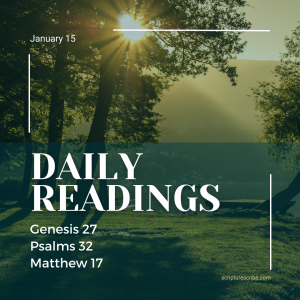
Saturday Jun 14, 2025
Saturday Jun 14, 2025
Judges 16 commences by reiterating Samson’s, as well as our own problem- “he saw”.Samson failed in letting his heart follow his eyes. This was a problem for his entire life: surely each of us knows this struggle. We are told that Samson ‘saw a harlot’ and was enticed. Other scriptural examples of being enticed by the desire of our eyes are Eve, Lot, Achan etc – it is desire driven by covetousness. Samson at midnight separates himself from his foolishness – and typical of the Abrahamic Covenant Seed – he takes possession of “the gate of his enemy”, on this occasion in Gaza, and carries that gate towards Hebron (meaning ‘fellowship’). After this Samson strayed in the vineyards of the notorious Sorek grape, where he fell in love with the well favoured harlot, whose clientele included the lords of the earth and the merchants (Revelation 17). This Nazarite is failing to honour any part of his vow. Delilah was that notorious woman. Delilah sorely pressed him until he reveals that the secret of his strength lies in the Nazarite Vow which bound him to his God. Samson was ironically blinded: a metaphor of his problem. The Philistines made Samson to serve his enemies in public humiliation. He served the enemies he had once afflicted. In his downcast condition he reflects upon his folly and seeks once again for the fellowship with his God that he had lost and now longs for. As a symbol of his renewed status his hair grew. The Nazarite who had broken his vow was to shave his head before allowing his hair to grow back (Numbers 6verses 9-12). If we did not have the record of Hebrews 11verses 32-34 we may have questioned whether Samson was a faithful man. Certainly he was! We can only endorse Yahweh’s gracious forgiveness to this man and how encouraging is this to us. Samson slew more in his death than throughout the entire 40 years of his judgeship.
After the destruction of the mighty Assyrian army and Hezekiah’s miraculous recovery from a fatal leprosy Babylon (Nineveh’s rival) sent its ambassadors to congratulate king Hezekiah. These envoys carried gifts and sought to discover the extent of Judah’s wealth. Hezekiah was lifted up in pride and he showed and told them everything about his kingdom. 2 Chronicles 32 verses 23-31 provides details about this. Read these verses and compare them with the lessons that the Apostle Paul may have drawn from these events in 1 Timothy 6verses 17-19. Read these verses carefully and ponder what it teaches us about how we must live today.
Chapter 3 completes Peter’s 2nd letter. The first 13 verses tell of the coming day of judgment. Verses 1-5 speak of the wilful ignorance – ie by deliberate choice – of the coming judgments upon the wicked. The Apostle shows that despite warnings given to Noah and to those of his generation for 120 years (see also Hebrews 11 verse 7) those who had once been believers had chosen to abandon their faith. Though punishment seemed slow in coming it was certain. The slowness was to give time for people to repent and turn to God. Our God is not willing that any should perish (verses 8-9). Opportunity must be seized now as there will not always be opportunity. Like unsuspecting individuals those who are unready for the Lord’s return will find themselves suddenly ensnared (like a thief in the night surprises those who are not prepared). Our Lord Jesus Christ describes this in Luke 21verses 34-36. Paul likewise speaks of this time in1 Thessalonians 5 verses 1-9. The dissolution of the Mosaic order is described as the heavens and earth being dissolved. This is a common Biblical figure of speech (see Deuteronomy 32 verse 1 and Isaiah 1 verses 2 and 10). Seeing we are certain of the coming of the heavenly kingdom (Revelation 4 and 5 describe this time) Peter quotes from Isaiah 65verses 17-25) that we must live righteously and in readiness for our Lord’s return. So the life and behaviour of the believer must be fashioned in conformity with our desire to be part of the kingdom of our Lord and Christ (Revelation 11:1-9). Final words from Peter finish the letter in verses 14-18. The Apostle commends them to pay heed to the writings of Paul. The two great Apostles – Peter and Paul – stand shoulder to shoulder in their teachings and in their believing of and living the Truth. Peter’s concluding words in verse 18 should be read aloud slowly and pondered.




